If you missed Computing Science Scotland Week, we have (most!) sessions available for you to view again! (Unfortunately the tech gremlins appeared in a few recordings!)
These videos, and many others are available to watch on our youtube channel playlist
All links and descriptions of our recorded sessions are below, but first we’d like to say thank you to all of you that participated in #CSscot23 and made it the success it was!
For You and Your Learners
Inspiring Sustainable Behaviour with micro:bit #CSscot23
Making a difference in the world around us can seem a little daunting but there are lots of easy, individual and local things we can do to help. Using the accelerometer on the BBC micro:bit, we will code a random sustainability activity picker to inspire us all to make a difference and to have fun doing it.
This session is suitable for learners first – 4th level.
This session is based on the activity picker project – https://microbit.org/projects/make-it-code-it/activity-picker/
This session for you to watch with your class at your own leisure. The video will be made available from 17th May at 11am within the Curriculum Live Channel.
Encouraging those around you to make better choices in their sustainable behaviour is hard. One important thing to encourage change is to convince them with data. Using the data logging feature on the BBC micro:bit, we will build a manual data logger to allow you to gather data for your local area. You could look at transport on the way to school or the types of litter in your local environment. The choice is yours but remember collecting the data is only the first step. Then you need to think about how you will present and share that data in order to make a difference.
This session is suitable for 2nd – 4th Level learners.
This session is based on the traffic survey project – https://microbit.org/projects/make-it-code-it/traffic-survey-data-logger/
Watch with your learners
Join Mitch Resnick, LEGO Papert Professor of Learning Research at the MIT Media Lab, as he explores and shares how he develops new technologies to engage educators and learners in creative experiences.
His Lifelong Kindergarten research group developed the Scratch programming software and online community , used by millions of young people around the world. The group has also collaborated with the LEGO Company on the development of new educational ideas and products, including the LEGO robotics kits.
There will be an opportunity to ask Mitch questions at the end of his talk and learners across Scotland will be invited to take part in a national Scratch sustainability challenge. Projects developed will be showcased globally on the Scratch website!
This live assembly will be relevant for learners in the upper first level – senior phase.
Here is the sustainability challenge!
Are your students interested in technology and how it can help us protect our planet? Could they see themselves working in a green career in the future? Join us on Tuesday 16th March at 2pm, when Tech She Can Learning Design and Development Officer (and experienced primary school teacher), Poppy Patel, will deliver a live virtual 30-minute Tech We Can assembly for children aged 8 – 11. Poppy will highlight the role technology plays in helping us to protect our planet and fight climate change – and also show some of the green careers within tech that students could pursue in the future.
CLPL Sessions for Educators
Celebrate #CSscot23 with the Education Scotland Digital Team, by joining a short 30 minute evening ‘Code Along’ session to explore the free online block-based coding app Scratch Jnr.
Scratch Jnr provides an introduction for early level learners to experiment with programming their own interactive stories and games through block-based coding, with endless opportunity to problem solve and express themselves creatively.
This session is suitable for all practitioners working with early level learners across a variety of settings.
Please download the app prior to the session and ‘Code Along’ with us.
The app be downloaded here. For more information about Scratch Jnr, please click here.
Celebrate #CSscot23 with the Education Scotland Digital Team, by joining a short 30 minute evening ‘Play Along’ session to explore the free resources from Barefoot Computing
Barefoot Computing allows you and your learners to explore computational thinking using simple practical activities.
Join Esports Scotland to hear about their journey into education and their future plans.
Over the past 18 months Esports Scotland have been working within education in Scotland. Today’s session will talk about our journey into education and our future plans. -Overview of partnership and Esports projects
-Project wins and hurdles partnerships helped overcome
-Esports Scotland and education
-D&A college and Esports progression
- What is artificial intelligence
- What is generative AI and some examples
- Prompt-craft
- How might you use generative AI tools to support your work

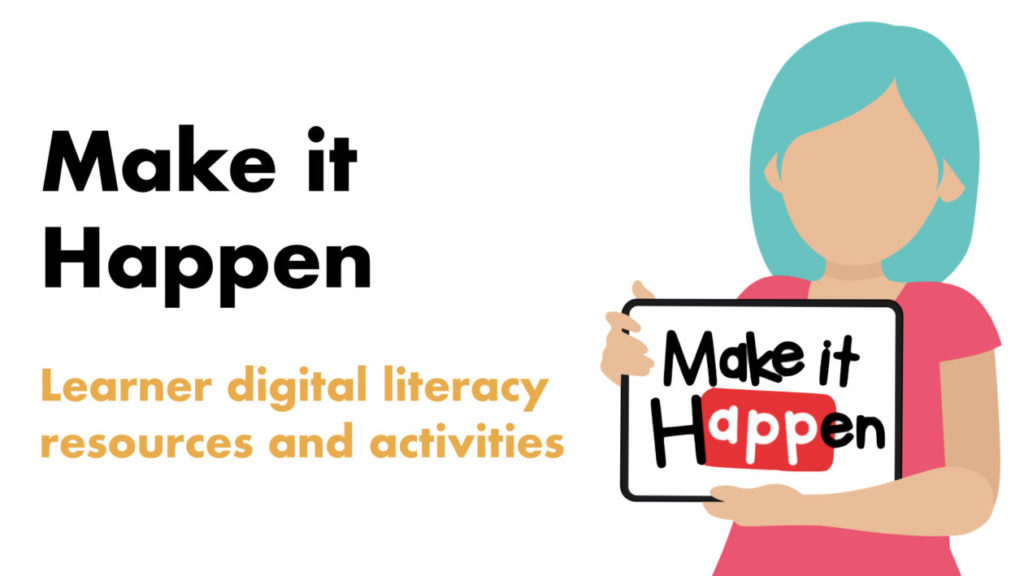
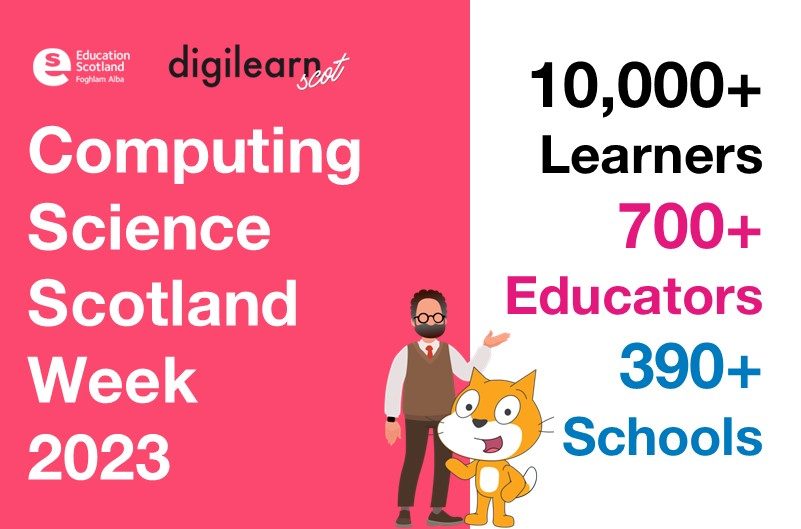








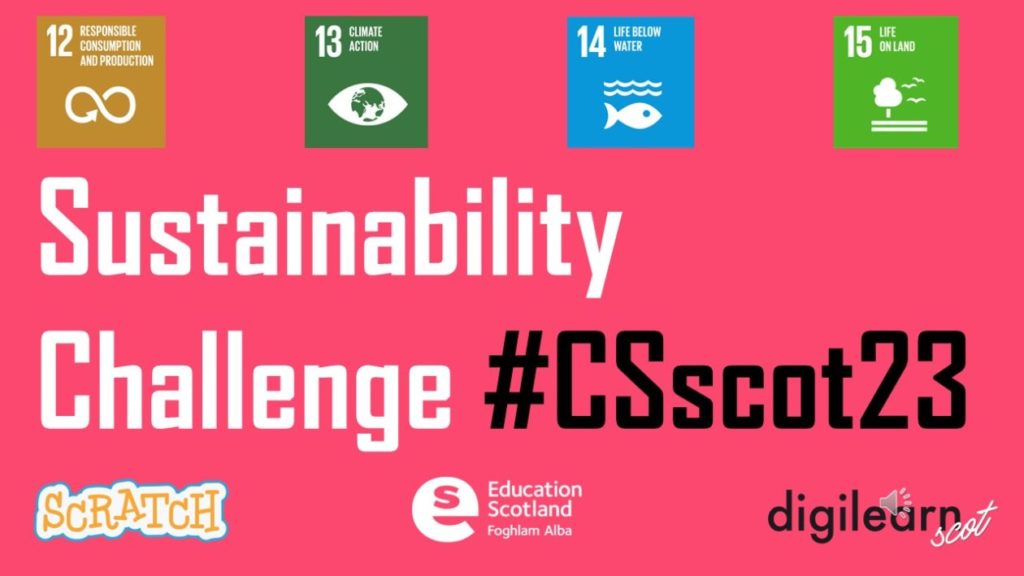

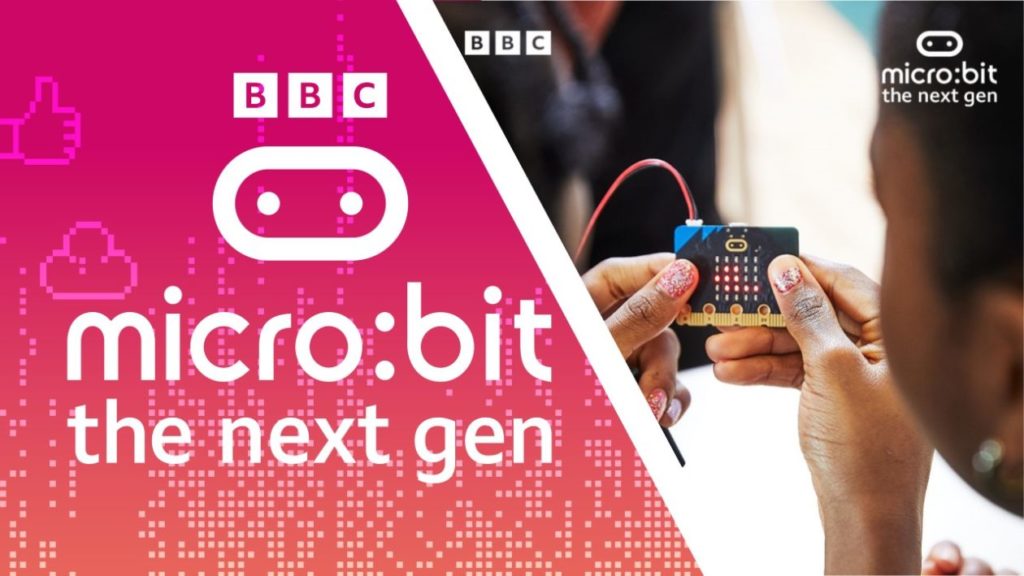
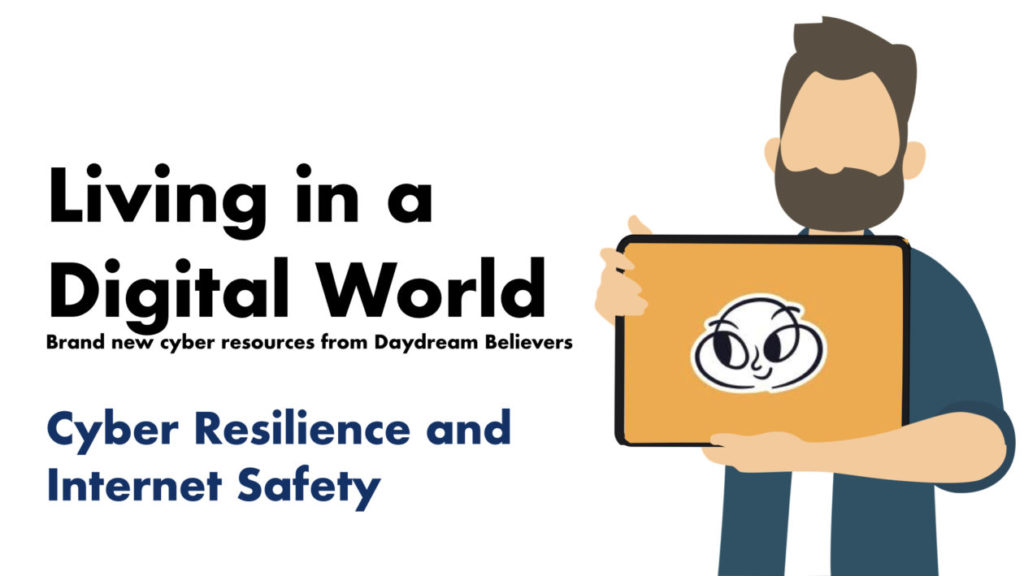

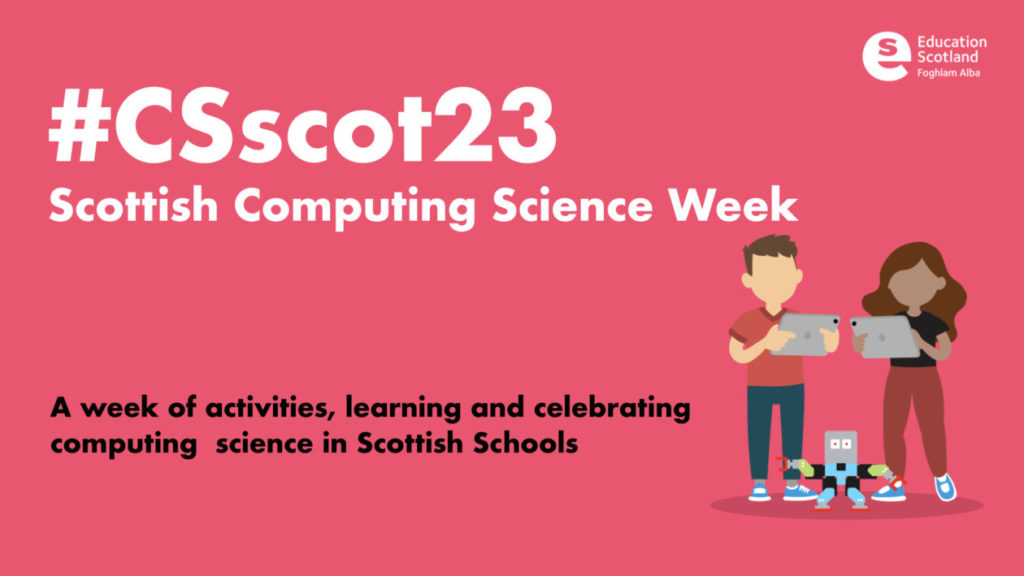



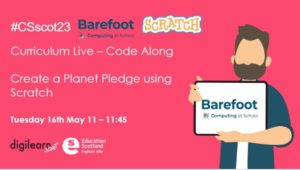

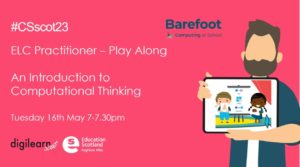
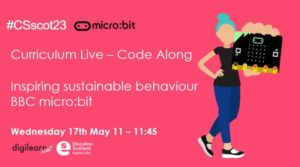
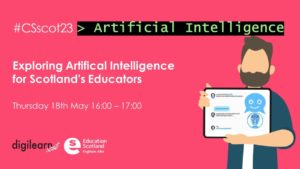
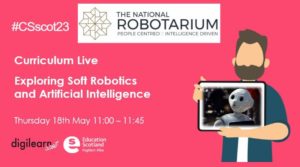
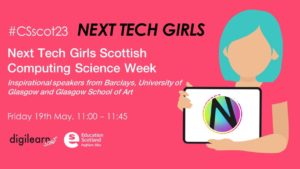
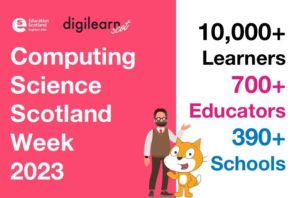
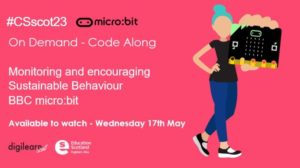
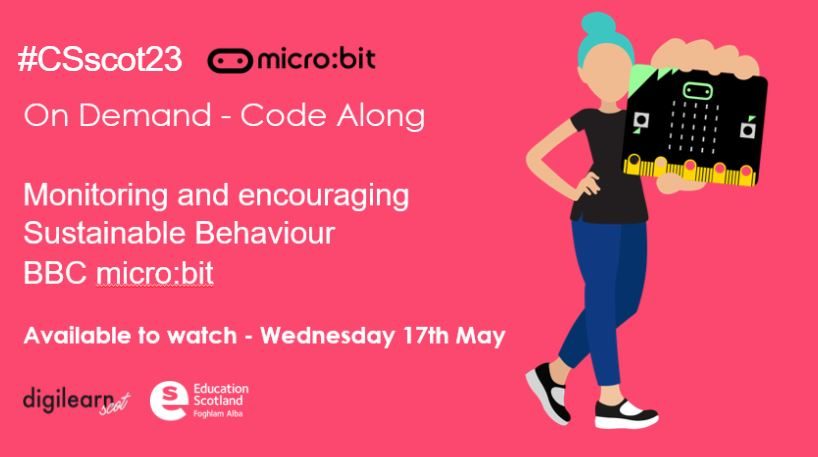
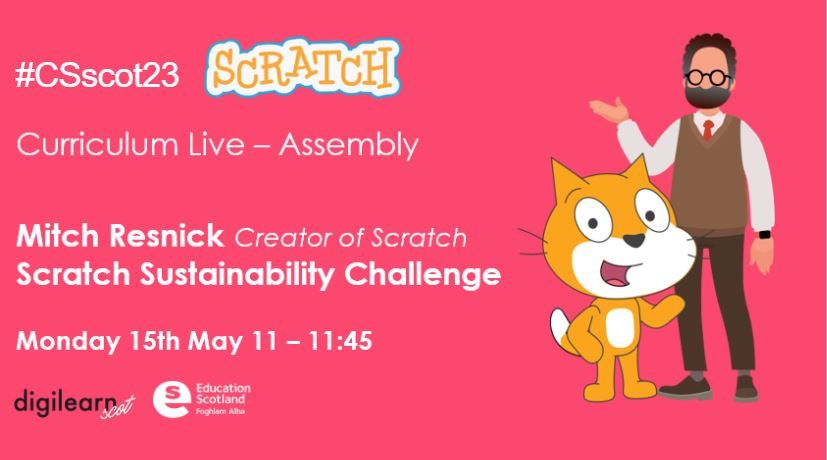

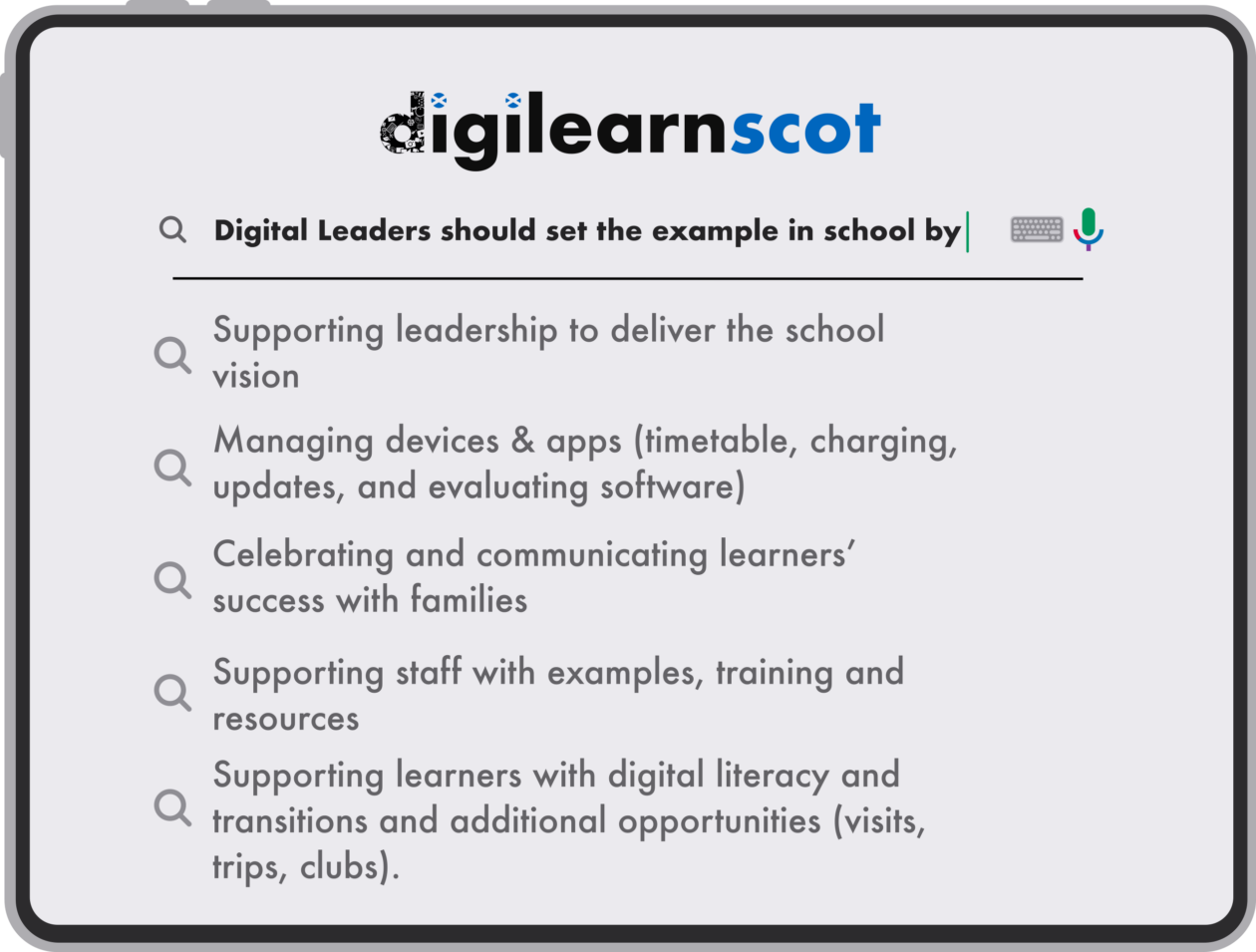
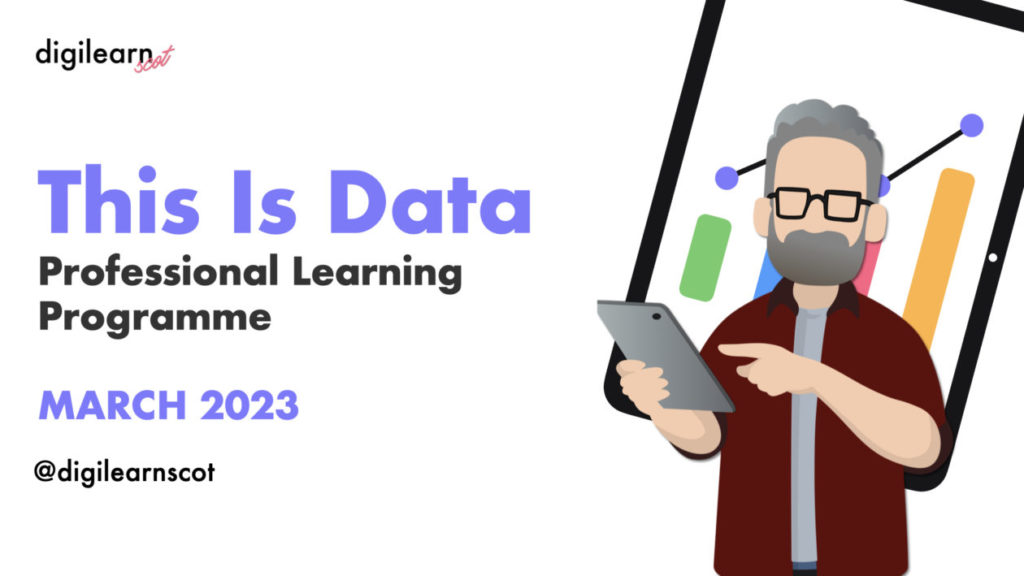

You must be logged in to post a comment.